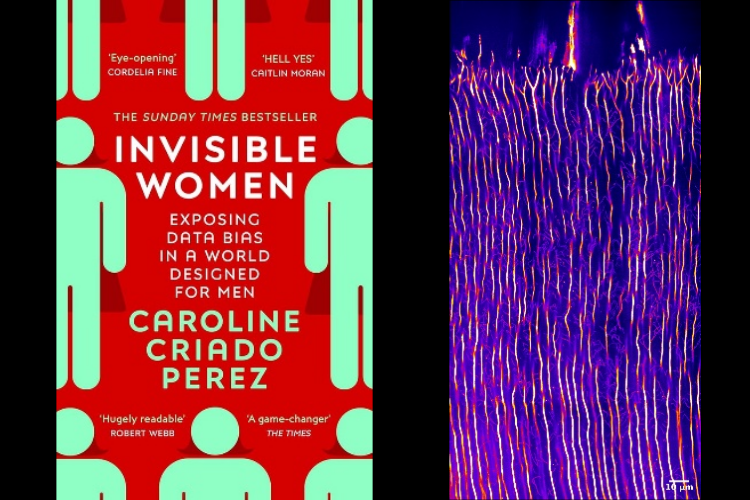- Imprimer
- Partager
- Partager sur Facebook
- Partager sur X
- Partager sur LinkedIn
Séminaire
Le 14 juin 2024

Antoine Jallon (MC2) // Seunghwan Lee (Optima)
Invisible Women
Antoine Jallon (MC2)

Today’s society is increasingly reliant on data. Big data, fed to big computers that in turn give big truths on which rely most decisions, from government policies to medical research, technology, media... In her book Invisible Women, Caroline Criado Perez describes how in a world largely built for and by men, we are systematically ignoring half the population, thus creating a strong bias : the gender data gap. Indeed when your big data is corrupted by big silences, the big truths you get are half-truth at best.
- How is women invibilisation inscribed in language itself ?
- Why are women 47% more likely to be seriously injured in a car accident ?
- Can snow-clearing be sexist ? Through examples from or inspired by this book, such are the questions we will try to answer.
Visualisation of porosity in human dentin: Challenges and achievements
Seunghwan Lee (Optima)

Visualisation of porosity in human dentin is crucial for mechanobiological studies. This is because the flow of fluid in the porosity network induces mechanosensing in human dentin. Therefore, it is important to visualise their precise three-dimensional morphology in order to understand fluid flow. However, difficulties in imaging dentin porosity include scattering from a mineralised tissue, aberrations due to refractive index mismatch, and the need for high resolution to measure diameters from 1-3µm to 300-700nm. Therefore, this presentation will highlight the techniques currently used to visualise dentin porosity and the remaining challenges that need to be addressed in the future.
Date
11:00
Localisation
LIPhy, salle de conférence
- Imprimer
- Partager
- Partager sur Facebook
- Partager sur X
- Partager sur LinkedIn